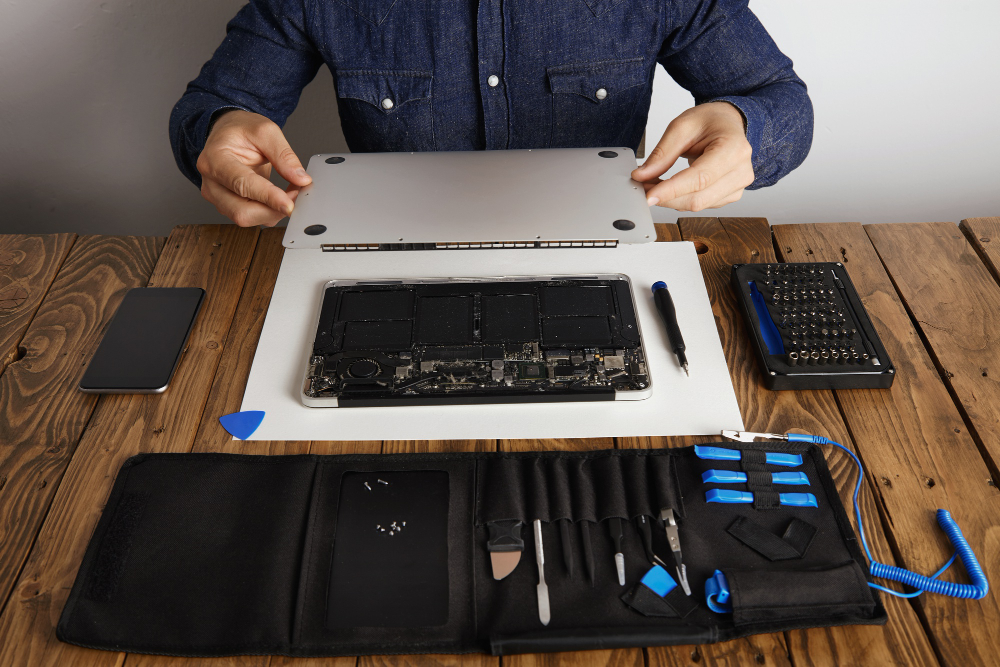Sustainability has transitioned as the top priority, playing a pivotal part across business planning, operations as well and management, which notably reaps scalable outcomes. Consumers are focusing more on eco-friendly companies, and the government is also setting new standards for minimising carbon emissions. One of the most potential ways for the firms to meet the demands is by adopting green technology, specifically in terms of the IT infrastructure. Incorporating refurbished laptops and desktops into business operations is a seamless and highly impactful way to minimise the environmental impacts, reducing costs and promoting an eco-friendly business model.
Perks Of Green Technology For Modern Businesses
Adopting green technology is a considerably cost-effective strategy that epitomises a better commitment to an eco-friendly, sustainable future. Businesses that adopt refurbished electronic items and follow eco-friendly practices help minimise e-waste while meeting consumers’ expectations for better environmental responsibility.
Cost Reduction With Sustainable Practices
Adopting refurbished laptops enables businesses to reduce their IT equipment costs while maintaining a higher level of performance. These refurbished electronic items restore their near-new condition, rendering them a cost-effective alternative to brand-new items. Firms can effectively save on upfront costs while allocating resources to other areas of possible growth.
Refurbished electronic items can help reduce the cost of replacements. Instead of throwing away old or underperforming devices, firms often extend the lifespan of the hardware through refurbishment and upgrades. This approach benefits the company’s budget as well as the environment, minimising the need for new resources and reducing the amount of electronic waste.
Adapting Green Future with Solar Panel Installation
Solar panels significantly reduce a company’s carbon footprint. Clean energy adoption helps decrease reliance on fossil fuels, leading to lower greenhouse gas emissions and alignment with global sustainability goals. Enhanced environmental responsibility strengthens brand reputation, fostering trust and loyalty among eco-conscious clients, investors, and stakeholders. Companies embracing solar energy demonstrate leadership in corporate environmental responsibility.
Solar panels effectively contribute to minimising carbon footprint. Adopting clean energy aids in reducing dependencies on fossil fuels, thereby leading to reduced greenhouse gas emissions and achieving sustainable business goals. It forms the most strategic adoption of solar tech that makes businesses stand at the forefront as pioneers toward a sustainable future. Installing solar panels helps businesses take better steps towards eco-friendly practices.
Boosting The Image And Appeal Of Brands
As reported by Coherent Market Insights, the global market size for refurbished electronics was valued at $48.29 billion in 2023 and is projected to reach $94.10 billion by 2030, growing at a rate of 10% from 2023 to 2030. Consumers today choose brands that focus more on sustainability and green practices. Firms adopting such measures stand out by epitomising their sustainable commitment to the environment. Using refurbished devices in daily operations considerably saves costs while uplifting the company’s public image.
Brands’ positive outlook establishes them as potential marketing tools. They position themselves as eco-friendly, alluring, eco-conscious consumers while building customer loyalty. Adopting green tech and eco-friendly practices can strengthen brands’ appeal and give them a competitive edge.
Meeting Regulatory Standards
Environmental policies and regulations have become more stringent across the international market, especially at the corporate level. The government adopts more appropriate measures to minimise the effects of business processes on the environment, such as energy consumption, waste control, and carbon emissions. Green practices like using refurbished desktops and laptops by various organisations are in line with these standards.
When such items are refurbished for use in businesses, their carbon footprint is as acceptable as the legal standards require. This can help avoid such upgrades and enable organisations to pay fines and pass regulatory audits easily. By adopting green technology, companies show higher levels of compliance when there is an active assumption of responsibility that enhances reliability among investors and shareholders.
Enhancing Employee Retention And Engagement
Sustainability practices influence consumers and employees in many different ways as seen through the following marketing practices. Being diligent in green tech directly enhances the morale of a company’s employees, giving them an impression that their firm is indeed on the same side as them in terms of sustainability. Refurbished electronic items are outwardly indistinguishable from brand-new products; nevertheless, they are useful as an approach to remodelling a company’s promoting a green culture.
Research establishes that staff is more likely to stay loyal to organisations that are more tuned to socio-economic concerns. Green tech is one area that can make its employees have more passion and pride in the organisation so that the rates of retention are enhanced.
Boosting Functional Efficiency
Green tech has the possibility of increasing a business’s efficiency in its regular operations. Using refurbished items, for example, minimises the requirement for constant hardware upgrades and saves resources and time. Numerous firms discover that refurbished electronic items meet their functional requirements similar to those of new devices, mainly because of the greater availability of high-end, top-performing refurbished models.
The energy-efficient tools are the elements of green tech that boost functional efficiencies by reducing the rate of energy consumption. The businesses often minimise their cost to utility while positively contributing towards preserving the environment. These benefits include enhanced levels of efficiency and saving on costs, making green tech the perfect option for businesses in search of optimising their operations while following sustainable measures.
Conclusion
Opting for green tech is a highly practical option that connects well with the financial objectives of a company and environmental concerns. Each business comes with the greater possibility of driving better change while investing in sustainable technology as the key part of its operations. Green tech supports the bottom line of the firm while aligning the brand as a thoughtful leader focusing on sustainability. The businesses that wish to stay on a competitive edge meet social responsibility. Adopting green tech is no longer an option but has become a mandate!






